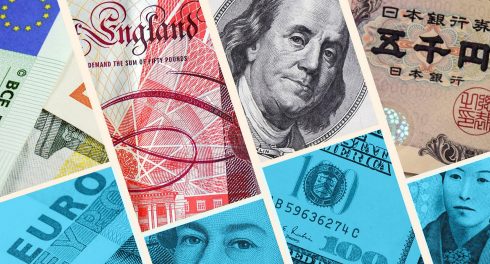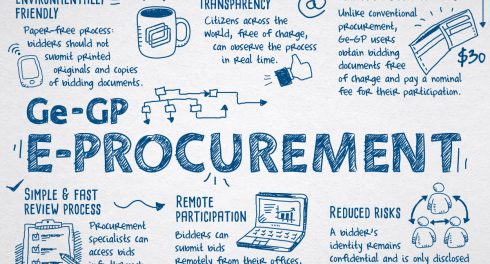
Photo Credit: Corporate Finance Institute
Banks can be important players for those, such as in law enforcement, seeking to hold corrupt actors to account. However, dedicated advocacy is needed to help ensure the banking sector takes more proactive steps. This is a highly technical field, where investigations can take time, and so to can building the relationships and credibility needed for such investigations to be taken seriously and acted upon. However, successful advocacy efforts can bring significant positive change and potentially significant sanctions on those involved.
TAI convened a funder conversation to explore what is and is not working in this field and how to build on these successes. While it may not be immediately obvious, there is a link between behavior and accountability involving the banking sector to many important causes, like anti-corruption, anti-human trafficking, countering terrorist finance, and much more. This blog highlights the rationale for this investigative work and offers five suggestions on how funders can help scale its impact.
Why should financial institutions be held accountable?
Banks are sometimes involved in facilitating illegal/criminal activity or unsavory conduct. The FinCEN files leak shows the potential abuse of the current financial system for myriad illegal behavior. It documents how banks often submit suspicious activity reports to U.S. authorities but do not prevent the transaction from going forward. As the International Consortium of Investigative Journalists (ICIJ), the group behind the investigation, says “The banks could serve as a chokepoint, cutting off the flow of dirty money around the world, or at least to anonymous shell companies. But banks’ financial incentives run toward keeping dirty money moving.”
This revelation comes even after creation of many tools and laws passed designed to curb illicit financial flows, such as the Patriot Act. This Act required drastic changes in banking sector controls in anti-money laundering and terrorist finance lest banks face steep penalties for non-compliance. An example of this is HSBC in 2012, where the firm was fined a record $1.9bn for allowing drug cartels to launder roughly $880m of dirty money.
These examples suggest there remains clear room for improvement.

Image Credit: iStock/erhui1979 via SSIR
How civil society can help banks hold their customers – and themselves – ultimately accountable?
It is simply not enough to convene and bring banks into a general dialogue on this issue. Potential conveners need to bring specific examples of how banking systems are being abused to have a more fruitful discussion. One such example is The Sentry’s work in the Democratic Republic of Congo (DRC).
The Sentry identified a North Korean firm under sanctions by the European Union, the United States, and the United Nations, operating in the DRC. It maintained access to U.S. dollar bank accounts through a regional bank in the DRC, in addition to building prohibited works, like statues – both clear violations of UN and U.S. sanctions. The Sentry worked with several banks, governments, and international organizations to document the problem and published a report detailing their findings. As a result, one U.S.-bank created an entire team to address issues highlighted in the report and multiple governments are now investigating the matter.
An example of why banks should be pushed to investigate alleged criminal behavior of their customers is that of two palm oil producers in Malaysia — FGV Holdings and Sime Darby Plantation Berhad (SDP) — both of which are subject to withhold release orders (WROs – detaining imported products under the suspicion of forced labor in production) issued last year by U.S. Customs and Border Protection Office (CBP). Lengthy investigations by CBP concluded that the companies utilized forced labor in whole or in part to produce some of their palm oil products, subjecting workers to physical and sexual threats of violence, and restricted freedom of movement.
Duncan Jepson of Liberty Shared, which petitioned for a WRO against SDP, further stated that these findings and the CBP order should serve as a red flag to all financial institutions involved in financing this industry and providing services such as payroll and credit facilities.
Challenges in accountability advocacy
Banks do not want bad press. Banks do not want major fines. But banks do want to work in as many jurisdictions as safely possible. However, when a bank is blindsided with a risk, it can lead to derisking (where a bank eliminates risk by simply pulling out entirely from the jurisdiction, as happened to Greece in the 2008 financial crisis). This can majorly affect a country’s access to the global financial system with serious negative impacts to legitimate business and the population as a whole.
Consider Citi Bank, the only E.U./U.S.-based bank operating in DRC right now. Citi derisking in the DRC would have a disastrous effect on DRC’s already beleaguered economy. Launching a targeted advocacy campaign highlighting all the misdeeds of banks in a jurisdiction without working cooperatively to address those issues could exacerbate the potential for derisking.
Risky business

Image Credit: Sweet Melodies FM
How funders can best support accountability efforts
The discussion revealed five ways that funders can reinforce banking sector accountability:
1. Fund more groups to undertake detailed investigative work and generate ongoing intelligence and data for the banking industry. At present, there are more conveners of meetings than investigators of the problem. Instead, let’s create a broader flow of intelligence about the relationship between banks and these illicit activities; then discuss what we have learned. While there are clear successes in financial institution accountability, there are simply not enough groups doing this type of work – perhaps just 4 or 5. Part of this is due to the difficult nature of the work, but also due to a general lack of funding in this area. Without more investigation, there are too many false negatives.
2. Be patient. Effective grants to this sector need to be long-term, as this work takes time to demonstrate results and may not conform to regular grant cycles.
3. Encourage practitioners to focus on local and regional banks as they far outnumber big names like HSBC, Citi, and Barclays and handle a tremendous number of transactions daily, and are often closer to the account holders, deals, etc. Much of the harm and abuse to vulnerable populations and environments occurs in developing economies where apart from a small number of global emerging markets banks most banking is done by local or regional financial services organizations.
4. Encourage grantees to look for organizational impacts, such as documented changes in bank behavior or internal controls. Simply organizing and convening banks to a one-off session is not enough.
5. Look to hire staff with knowledge of the banking sector into funder organizations or help existing program officers gain that expertise. This in-house understanding will inform smarter grantmaking on this issue.
TAI would like to thank Brad Brooks Rubin, Duncan Jepson, and their colleagues for sharing their expertise for this funder conversation and blog.


